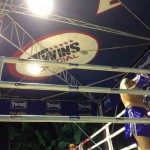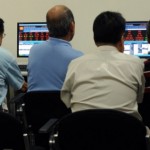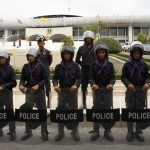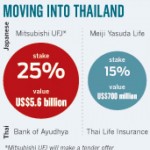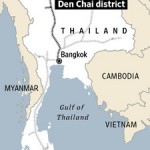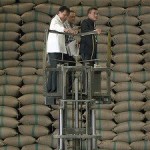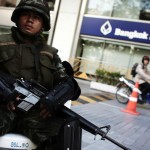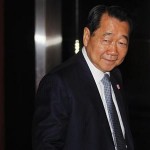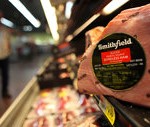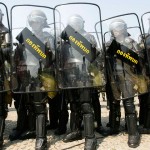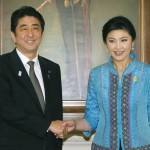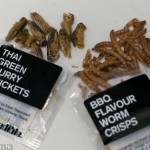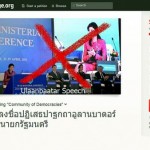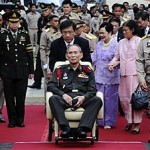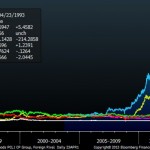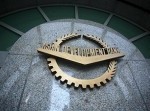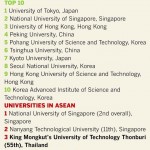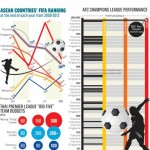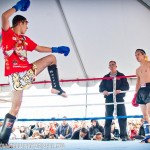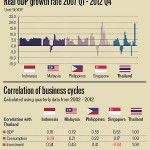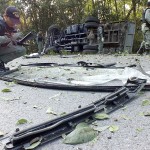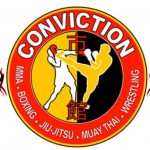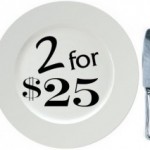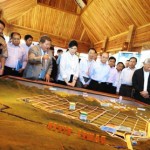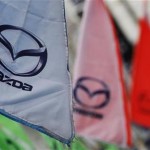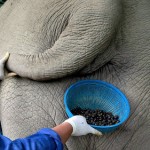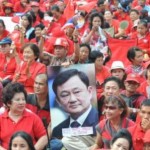Insight: Big debts loom over Thai tycoons’ bold bets
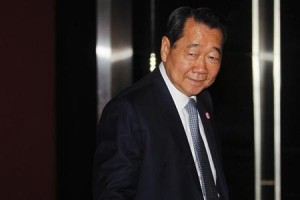
(Reuters) – Two Thai business tycoons, one a politically connected Chinese speaker, the other the son of a street vendor, have spent $27 billion on acquisitions in the past year, mainly abroad – more than all Thai firms spent overseas in the previous three years.
The billionaires – 74-year-old Dhanin Chearavanont and Charoen Sirivadhanabhakdi, five years his junior – personify Thailand’s bull market and Asia’s frothy credit, feeding on fast, cheap loans bolstered by a surging local currency.
The worry though is that they also represent the financial risks building inside Thailand and elsewhere in Asia amid signs of economic slowdown and tighter lending markets. Consumer growth needs to stay fairly robust to justify the valuations paid for these deals, said Standard Chartered analyst Nirgunan Tiruchelvam.
So far, Dhanin and Charoen look to be digesting their spoils without issue, but some warning bells are ringing about the high prices paid and the heavy debt load taken on – loans that are tied to real estate and a skittish Bangkok stock market that can swing sharply even when interest rates rise, let alone if there’s a credit crunch or steep economic slowdown.
“I’m a little concerned about Thailand, to be honest. It’s all debt. I’ve been in Asia long enough to remember how messed up Thailand was,” said a veteran Asia investment banker in Hong Kong, recalling the 1997 Asia financial crisis. “Financing was pretty cheap, interest rates were low. And once the music stopped ..?”
AUSPICIOUS
Early on April 23, bankers, lawyers and executives gathered in HSBC’s Hong Kong boardroom to sign the $6.6 billion purchase of Thai wholesaler Siam Makro by CP ALL, the retail arm of Dhanin’s CP Group conglomerate. According to some of those present, Dhanin’s son called for hush and counted down the seconds so his father could sign at exactly 8:45 Bangkok time – as advised by his feng shui consultant to maximize good fortune – revealing both Dhanin’s ability to command a roomful of powerful financiers and the Chinese influence on his personal and business life. The number 8 – linked by Chinese to prosperity – figures frequently in deals.
Dhanin’s father, Chia Ek Chor, left Guangdong in China in 1921 and, a quarter of a century later, renamed his seed shop Charoen Pokphand – Thai for “prosperity of consumers” – and began diversifying. Dhanin, the youngest son, a cockfighting fan at boarding school, has run the business since he was 30, growing it into a multinational with ventures across farming, retail and telecoms. His sons Suphachai and Soopaki help manage the vast empire, say people close to the family.
As of March, the Dhanin estate had an estimated net worth of $14.3 billion, according to Forbes. Gold and gem statues adorn CP’s Bangkok headquarters, and Dhanin’s neo-classical mansion, bristling with high-tech gear and arranged according to feng shui, is reckoned to be worth $30 million. The fluent Mandarin speaker has strong political connections in Beijing, and one of his businesses owns Shanghai’s largest shopping mall.
Dhanin paid more than 50 times Siam Makro’s price to earnings ratio after borrowing most of the money for the acquisition from banks – a hefty premium to any recent Asian retail sector deal. “What looks expensive today will be cheap in the long term. Siam Makro is a good asset,” Dhanin said then.
That’s a positive view shared for now by Standard Chartered’s Tiruchelvam given “a transformation in retail behavior that is in favor of these businesses.”
‘TAKEOVER KING’
Charoen, too, has taken advantage of frothy debt markets.
The Charoen-controlled entity that bought Singapore’s Fraser & Neave for $11 billion in January leveraged up the balance sheet of his flagship company Thai Beverage, quadrupling its debt to core earnings ratio – a key measure of its ability to pay back debt. Charoen has indicated a cash payout from F&N will pay down some of that business’s debt.
Ratings agencies remain wary. Standard & Poor’s, which has downgraded Thai Beverage’s credit rating, was critical about Charoen banking too much on the listed company to raise debt. “When a company shifts its risk tolerance so much in such a short period of time, it’s something you have to question at this stage,” Jean Xavier, a director at S&P, told Reuters.
Like Dhanin, Charoen has weathered crises before.
His father eked out a living by selling seafood omelets on the streets of Bangkok’s Chinatown. The sixth of 11 children, Charoen demonstrated a sharp business brain at a young age, graduating late from fourth grade as he devoted his study hours to selling toys to his classmates, according to a biography.
He quickly rose from a supplier to state-owned distillers to having his own producer’s liquor license, earning the “Whiskey Tycoon” moniker, though he himself is teetotal, say bankers and businessmen who have worked with him. Backed by his father-in-law, Charoen bet on the financial sector, buying stakes in First Bangkok City Bank and Maha Thankit Finance and Securities – both of which collapsed during the 1997 Asia financial crisis.
Dubbed the “Takeover King” for his incisive acquisitions of stakes in companies struggling after the crisis – he expanded closer to home than Dhanin, focusing on Southeast Asia – Charoen is now grooming his children, including eldest son Thapana, to manage his TCC empire, which boasts a string of luxury hotels spanning four continents. His wife Wanna has been described as his “No. 1-1/2”, rather than Number 2, in recognition of her major role in managing the family business – estimated by Forbes to be worth $11.7 billion.
“The Sirivadhanabhakdi family are very humble, low-key people,” said Prinn Panitchpakdi, Thai country head at broker CLSA. “They’re very religious and attend Buddhist ceremonies.”
LIQUIDITY GLUT
Dhanin and Charoen are being showered with money for deals by banks which, says Standard & Poor’s Xavier, are extending loans as Asia has a liquidity glut – partly a spillover from Western central banks pumping funds into their markets.
“Valuations are secondary. It’s how much money is available,” said another banking source who has covered Thailand for many years. “Every bank is willing to bridge the entire acquisition off their own balance sheet.”
Siam Commercial Bank, the lead adviser to CP ALL on the Makro deal, offered so much money to the buyer that it needed a special Bank of Thailand waiver, according to a person familiar with the matter. And HSBC was comfortable enough to sit on both sides of that deal, advising the seller, Dutch trading firm SHV Holdings, and funding the buyer, CP ALL.
According to the person, banks were given very short notice that a deal was imminent, but still managed to pull together the $6 billion loan within a week – an extraordinarily short period of time for such a large amount.
For Dhanin’s $9.4 billion purchase of HSBC’s stake in China’s Ping An Insurance late last year, [ID:nL4N09F1OO] UBS offered a short-term facility worth $5.5 billion. [ID:nL3N0CJ0JY] Dhanin has said the Ping An loan was no more than $2.6 billion. To help finance the Fraser & Neave buy, Charoen’s Thai Beverage borrowed S$3.3 billion from seven banks for five years, replacing an earlier bridge loan, while his TCC family vehicle took a further S$9 billion jumbo bridge loan – the biggest by a Thai borrower – Thomson Reuters publication Basis Point reported.
Bridge loans are typically short-term and widely used by companies in M&A deals, replaced later by larger or longer-term financing.
“From a ratings point of view, in the case of ThaiBev/TCC, the track record of integrating very large acquisitions is largely untested,” said S&P’s Xavier. “When you have operated at low leverage for a long time and your debt load spikes very suddenly, how will the company manage a downturn?”
Neither Dhanin nor Charoen was available for interview for this article.
The Thai stock market is up nearly 9 percent this year, but has dropped more than 8 percent in the past three weeks. Thailand’s central bank cut interest rates to 2.5 percent last month after weak first-quarter GDP data.
“If you stumble a little, if that begins to unravel, whoever lent them money is going to have some serious concerns. It’s all margin loans … very tied to the market,” said an M&A adviser based in Singapore.
From: http://www.reuters.com/article/2013/06/09/us-thai-tycoons-insight-idUSBRE9580G520130609












